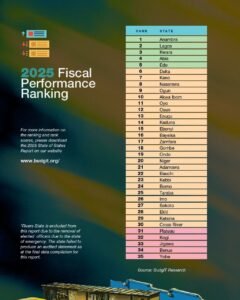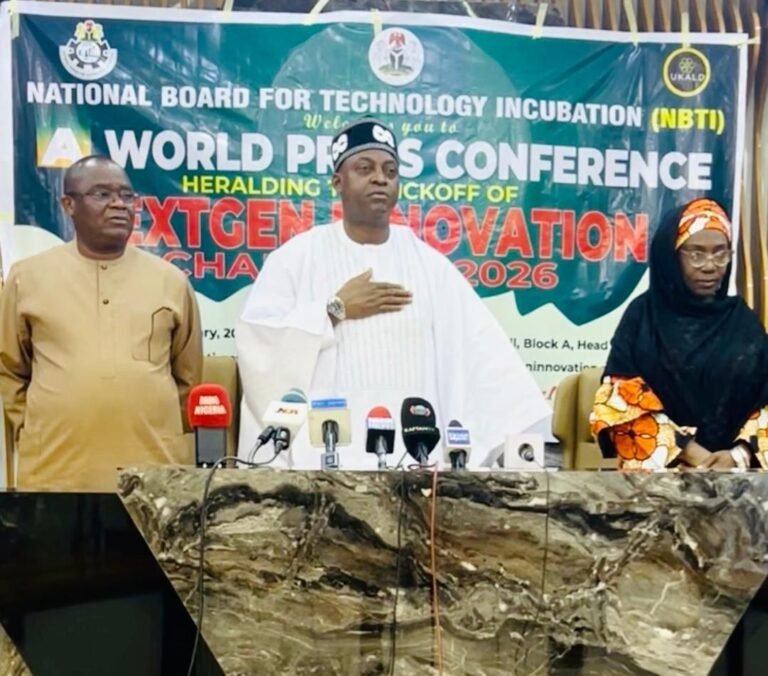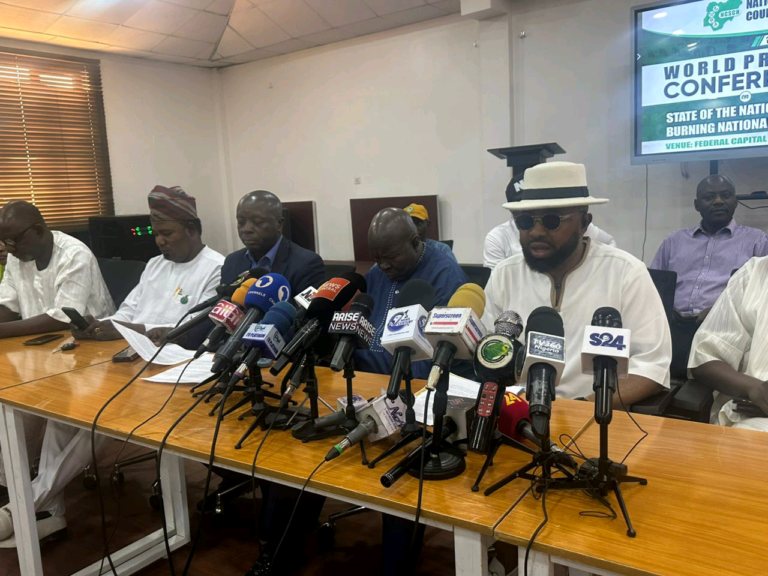

Health funding gap: States fail to fully deploy N1.32tn budget
By Abujah Racheal
October 28, 2025
BudgIT, Nigeria’s leading civic-tech organisation promoting fiscal transparency and accountability, has said that in 2024, Nigerian states collectively budgeted N1.32 trillion for health.
However, actual spending fell significantly short, reaching only N816.64 billion, representing a 61.9 per cent budget performance.

This was highlighted at the BudgIT 2025 State of States Report launch, themed “A Decade of Subnational Fiscal Analysis:” on Tuesday in Abuja.
The News Agency of Nigeria(NAN), reports that for a decade, BudgIT’s State of States Report has assessed fiscal performance, sustainability, and accountability across Nigeria’s 36 states.
It has challenged leaders, informed citizens and shaped reforms.
The report shows that only seven states – Yobe, Gombe, Ekiti, Lagos, Edo, Delta, and Bauchi – implemented more than 80 per cent of their health budgets.
It said that Yobe led with a 98.2 per cent implementation rate, though its total expenditure was N13.24 billion, ranking 24th among all states.
On a per capita basis, the report the figures were concerning. The report states that states spent an average of N3,483 per person on health, with no state exceeding N10,000 per person.
It stated that only Lagos, Bayelsa, Edo, Abia, Kwara, Niger, and Delta spent more than N5,000 per capita.
During the BudgIT 2025 State of States Report launch, Mr Oluseun Onigbinde, Global Director, warned that while states have seen increased revenue inflows from federation allocations, much of this additional income has not been channelled effectively into critical social services like healthcare.
Onigbinde, said there is an urgent need for states to prioritise health funding and ensure allocations translate into tangible improvements for citizens.
He highlighted the broader implications of subnational fiscal management.
He said the report serves as “a mirror reflecting the choices our state governments make, the paths they follow, and the opportunities they seize or leave behind.”
He noted that while transparency has improved over the past decade, many states still struggle to mobilise resources and manage them efficiently, leaving a gap between potential and actual service delivery.
“The State of States is not BudgIT’s report alone, it is a call to action, a roadmap for reform,” he said.
He urged states to prioritise fiscal accountability, innovation, and investment in sectors that directly impact citizens.
Dr Uche Amaonwu, Nigeria Country Director of the Gates Foundation, congratulated BudgIT for ten years of promoting fiscal transparency and accountability, highlighting how the report tracks Nigeria’s 36 states’ fiscal performance and encourages better governance.
Amaonwu said that fiscal transparency is not an end in itself but a tool to ensure public resources reach citizens effectively.
He noted that sound fiscal systems and governance improve service delivery, empower citizens, and enable states to invest strategically for shared prosperity.
He highlighted the role of data tools, like BudgIT’s Primary Health Care Accountability Tracker, in improving budget execution and accountability.
He called on state governments to take ownership of performance, adopt strong financial management practices, and ensure that every naira allocated to sectors like health, education, and human capital delivers real impact.
Amaonwu reaffirmed the Gates Foundation’s commitment to supporting BudgIT and reform-minded states to strengthen governance, noting that “fiscal health is human health, and governance, when transparent and accountable, is the bridge that connects both.”
Also speaking Mr Taiwo Oyedele, highlighted a decade of subnational fiscal analysis in Nigeria, showing both progress and persistent challenges.
Oyedele noted that while FAAC allocations and state revenues have increased, doubling from ₦5.4 trillion in 2023 to ₦11.4 trillion in 2024, many states still rely heavily on federal allocations, with 21 states depending on FAAC for at least 70 per cent of revenue.
He pointed out disparities in budget execution, with only two-thirds of education budgets and 62 per cent of health budgets implemented, and emphasised the need to shift from recurrent expenditure to capital and human development spending.
He praised states like Anambra, Lagos, and Enugu for good fiscal management, while urging others to improve, stressing that governance is reflected in prioritising infrastructure, productivity, and human development.
Looking forward, he called for deeper fiscal reforms, responsible debt management, harmonised taxation, and greater investment in education and health.
He urged states to rise above mere survival, convert fiscal gains into tangible prosperity, and ensure inclusive development, categorising them into growth, middling, or declining states.
NAN reports that the 2025 BudgIT State of States Report ranks Anambra as the top-performing state in fiscal management, with Lagos, Kwara, Abia, and Edo completing the top five.
Cross River, previously a top performer, dropped significantly, while Yobe replaced Jigawa at the bottom.
The report evaluates 35 states across revenue generation, expenditure patterns, debt sustainability, and sectoral investments in education and health.
Key findings include strong growth in total state revenue, particularly from FAAC transfers and internally generated revenue (IGR), though 28 states remain heavily reliant on federal allocations.
Capital expenditure is rising, with 24 states spending at least half their budgets on development projects, while recurrent costs and personnel spending continue to dominate in others.
Debt management shows progress, with 31 states reducing domestic debt, though some states remain highly leveraged.
Over the decade, Lagos, Ogun, Delta, Kaduna, and Enugu consistently led in IGR, while states like Borno and Ogun achieved the highest IGR growth rates.
BudgIT said that fiscal sustainability requires improved revenue systems, reduced waste, and prioritisation of infrastructure and human development, calling on states to turn revenue gains into tangible benefits for citizens.
(NAN)






